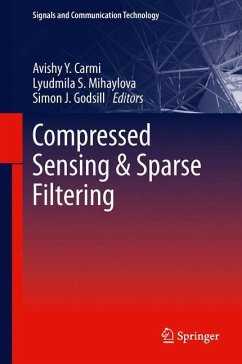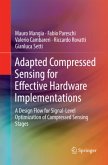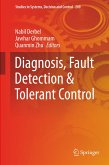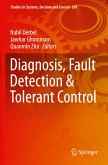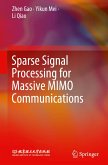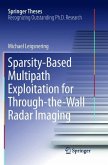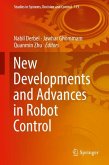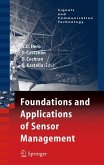This book is aimed at presenting concepts, methods and algorithms ableto cope with undersampled and limited data. One such trend that recently gained popularity and to some extent revolutionised signal processing is compressed sensing. Compressed sensing builds upon the observation that many signals in nature are nearly sparse (or compressible, as they are normally referred to) in some domain, and consequently they can be reconstructed to within high accuracy from far fewer observations than traditionally held to be necessary.
Apart from compressed sensing this book contains other related approaches. Each methodology has its own formalities for dealing with such problems. As an example, in the Bayesian approach, sparseness promoting priors such as Laplace and Cauchy are normally used for penalising improbable model variables, thus promoting low complexity solutions. Compressed sensing techniques and homotopy-type solutions, such as the LASSO, utilise l1-norm penaltiesfor obtaining sparse solutions using fewer observations thanconventionally needed. The book emphasizes on the role of sparsity as a machinery for promoting low complexity representations and likewise its connections to variable selection and dimensionality reduction in various engineering problems.
This book is intended for researchers, academics and practitioners with interest in various aspects and applications of sparse signal processing.
Apart from compressed sensing this book contains other related approaches. Each methodology has its own formalities for dealing with such problems. As an example, in the Bayesian approach, sparseness promoting priors such as Laplace and Cauchy are normally used for penalising improbable model variables, thus promoting low complexity solutions. Compressed sensing techniques and homotopy-type solutions, such as the LASSO, utilise l1-norm penaltiesfor obtaining sparse solutions using fewer observations thanconventionally needed. The book emphasizes on the role of sparsity as a machinery for promoting low complexity representations and likewise its connections to variable selection and dimensionality reduction in various engineering problems.
This book is intended for researchers, academics and practitioners with interest in various aspects and applications of sparse signal processing.
From the reviews:
"This book reports on the application of compressed sensing. ... This book presents cutting-edge research on one of the newest signal processing disciplines. It should be of great value to research scientists in related fields, and it could help research and development engineers evaluate the impact these new methods could have in their work." (Vladimir Botchev, Computing Reviews, February, 2014)
"This book reports on the application of compressed sensing. ... This book presents cutting-edge research on one of the newest signal processing disciplines. It should be of great value to research scientists in related fields, and it could help research and development engineers evaluate the impact these new methods could have in their work." (Vladimir Botchev, Computing Reviews, February, 2014)

